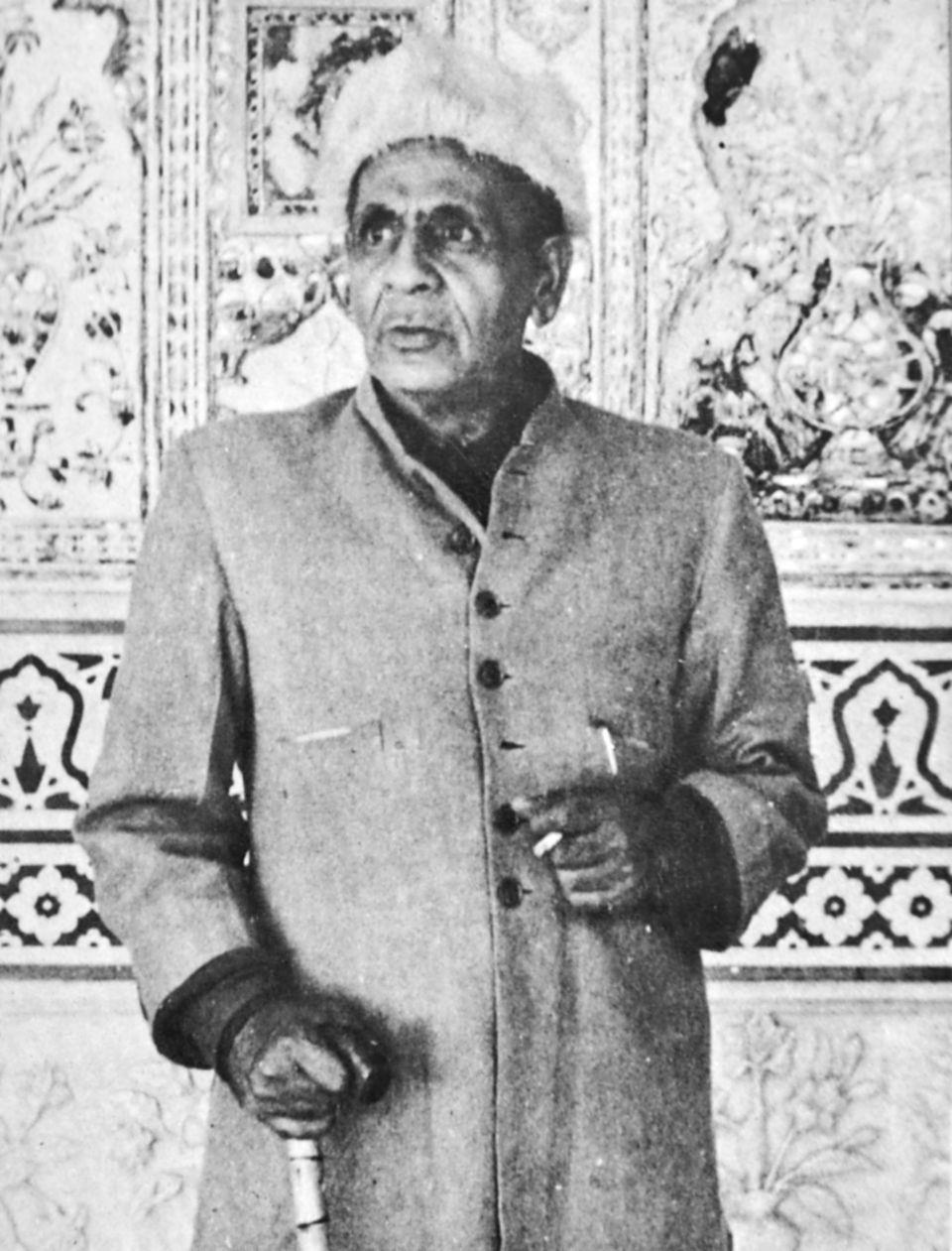
Rajesh K Pallan
FIRAQ GORAKHPURI, whose 125th birth anniversary fell on August 28, was an intellectual giant in the field of Urdu poetry. His verses reflect a lyrical quality and intensity of feeling, perhaps unparalleled in Urdu poetry.
Factfile
- Firaq Gorakhpuri was born on August 28, 1896, in Banwarpur village of Gorakhpur district, UP.
- He joined Allahabad University as a lecturer in English literature and wrote most of his Urdu poetry there, including his magnum opus, Gul-e-Naghma, which earned him the Jnanpith Award and Sahitya Akademi Award.
- Urdu poets like Allama Iqbal, Faiz Ahmad Faiz, Kaifi Azmi and Sahir Ludhianvi were his contemporaries but Firaq was able to carve a niche for himself as also among his peers like Muhammad Iqbal Yagana Changezi, Jigar Moradabadi and Josh Malihabadi.
He distilled into his poetry the varied influences gleaned from his vast study of world literature — Ghalib, Mir, Shakespeare, Wordsworth, Kalidasa and the Greek classics. He embraced Wordsworth’s dictum that poetry was ‘emotions recollected in tranquility,’ but he was equally emphatic that ‘it was the turbulence of the soul grafted in words’.
Like TS Eliot, he possessed a ‘historical sense’— the current of the past, passing through the present and gushing towards the future. That is why his ghazals — which were his forte — reflect the ancient, medieval and modern Indian culture and he dovetails it into a single whole. In his poetry, individual talent is inextricably woven into the texture of tradition.
Firaq Gorakhpuri, the pen name of Raghupati Sahai, loved the beauty in expression, in action and in diction:
‘Kisi goonge ka hai sapna
toh sabha behron ki
Ishq woh kissa hai,
jise kaun kahe, kaun sune?’
(Love is like the vision of a dumb man whose audience is of deaf people.
Love is that legend which nobody can utter or hear.)
Like John Keats’ works, the poetry of Firaq was sensuous. Commanding all five senses, he could play on the gamut of love, singing with passionate gusto the songs of love.
‘Dil ko mere sulaa gayeen teri nazar
ki loriaan
Sarhad e gaib tak tujhe saaf milenge
nakshe-paaon’
(Your sights lull me to sleep; you can clearly visualise footprints on the invisible horizons.)
Equally emotionally surcharged is his fertile imagination:
‘Sitare jaagte hain, raat latt jhukaye soti hai
Dabe paaon kisi ne aake khwab-e-zindagi badla’
(The stars keep awake, the night sleeps, its tresses falling: someone softly treaded and changed the life’s dream!)
In his poetry, we can visualise much of the jet-black flowing hair, ruby lips, dimpled hands, soft feet and peerless, almost talking eyes. Firaq’s expressions are not blank. These are not just a vague idea or illusion but a full-blooded reality. The beloved, in his poetry, is life-like and voluptuous, whose quivering hands we can observe, whose pleasing tones we can hear, whose swaying and scented body we can almost touch and whose three-dimensional presence we can feel.
Firaq, considered among the most influential poets of his time, is known to have given a new meaning to Urdu ghazal. This, perhaps, is the reason why maestro Jagjit Singh sang many of Firaq’s ghazals.
‘Bahut pehle se un kadmon ki
aahat jaan lete hain
Tujhe ae zindagi hum dur se
pehchaan lete hain’
(Since early on, we can recognise
the vibrations of those footfalls
Oh life! we can comprehend you
from a distance.)
Firaq was a romanticist to the core; his romanticism kaleidoscopically reflects expressions of a perfect vision, a cosmic sweep and a universal outlook. Artistically, he fits together the twin emotions in a fine blend. Some of the salient couplets of physical love bear testimony to his lurking desire to design his poetry as Krishna Leela:
‘Tum nahin aaye aur raat reh
gai raah dekhti
Taaron ki mehfil bhi aaj ankhein
bichha ke reh gai’
(You did not arrive: and the night
kept waiting for you
Even the star-lit sky was left longing)
Firaq’s poetry is a demonstration of the here-and-now naked realities as well as a miracle of divinity; sometimes, there is a Wordsworthian echo of pathos where he laments what man has made of man:
‘Insaan ko khareedtaa hai insaan
Duniya bhi dukaan ho gai hai’
(Man is acquiring man;
Even the world has become a trade.)
Recipient of the Padma Bhushan and Jnanpith awards, Firaq left an indelible mark on Urdu literature. A trendsetter in poetry, he inspired many a generation of Urdu poets.
A palpable numbness seizes our souls as we start humming to address his dominant presence in mushairaas:
‘Tabiyat apni ghabraatee hai jab sunsaan raaton mein
Hum aise mein teri yaadon ki chaadar taan lete hain!’
(When our mind gets ruffled in solitary nights,
We then drape ourselves in your memories.)
Join Whatsapp Channel of The Tribune for latest updates.



























